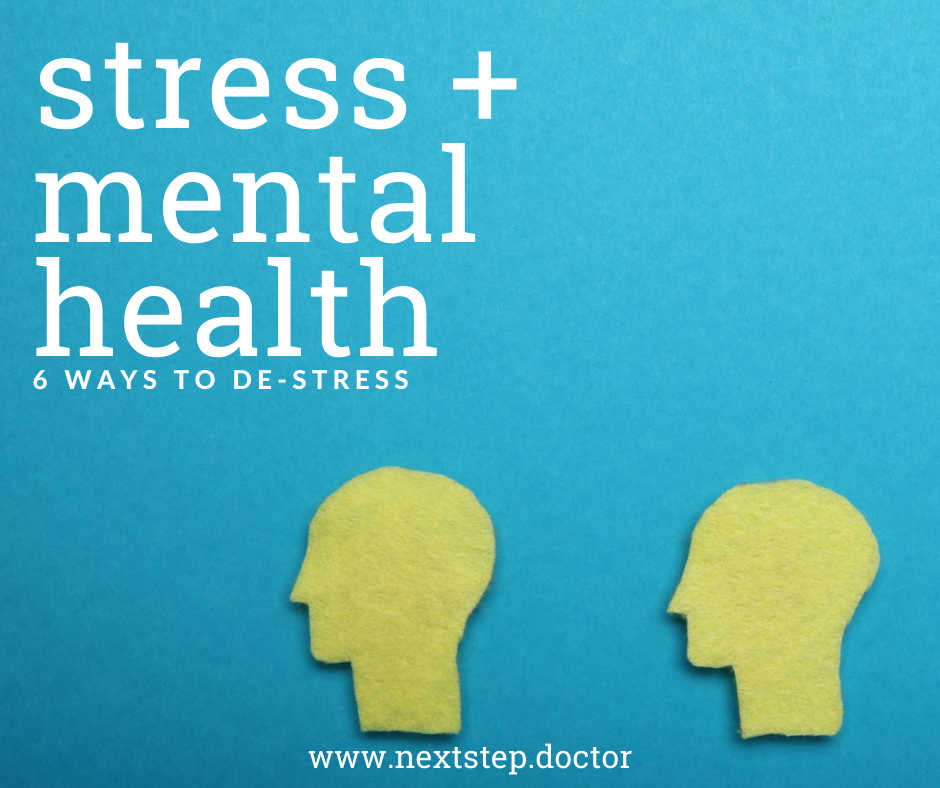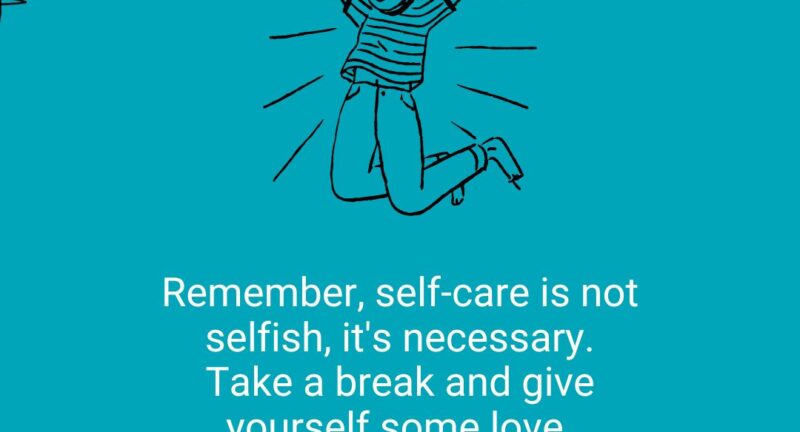
Stress and Mental Health: How Is Your Brain Affected?
Stress is frequently linked to physical issues (like headaches, muscle tension, or heart troubles), but chronic, unmanaged stress impacts your mental well-being too. Here’s what you need to know about the connection between stress and mental health, plus 6 ways to tame stress.
First, What Is Stress?
Stress seems like such an abstract concept. What stresses out one person might not stress out another person. So what — exactly — is stress?
According to the medical encyclopedia of the US National Library of Medicine, stress is your body’s reaction to a potentially dangerous situation or event. In other words, stress is how your body reacts to a demand of some kind. Stress isn’t necessarily good or bad. Occasional, spurts of stress can be a good thing. For example, a deadline at work can motivate you to finish a project.
Stress is common, and the reality is that everyone experiences some degree of stress on a daily basis. Stress shifts from neutral to bad when the occasional, situational stress turns into chronic stress. Here at Next Step 2 Mental Health, we understand how chronic stress can impact your mental health, often leading to increased feelings of anxiety and/or depression. If you’re feeling overwhelmed right now, we recommend that you schedule an appointment with us so you can get the care you need.
In the meantime, this is what you need to know about stress and mental health — and how we can help you feel less stressed.
How Stress Affects Your Mental Health
From weight gain to weakened immune systems to GI upset, it’s no surprise that stress takes on a toll on your physical health.
Stress also affects another part of your body: your brain. According to the experts at Harvard Health, prolonged stress can rewire your brain in a way that focuses on survival. How does that work? Chronic stress can cause your amygdala (a part of your brain that processes fear) to be more active than your prefrontal cortex (responsible for higher-order tasks). As a result, chronic stress affects your memory and other brain functions.
Chronic stress can contribute to:
- Constantly worrying
- Increased irritability
- Increased feelings of depression
- Increased feelings of anxiety
- Mood swings
- Feelings of worthlessness or inadequacy
- Racing thoughts and the inability to quiet your mind
- Difficulty focusing at work and at home
- Feeling intensely overwhelmed
In other words, unmanaged high levels of stress can trigger (or intensify) anxiety, depression, and other mental health disorders.
6 Ways to Reduce Stress
If you’re feeling overwhelmed and stressed, it’s important to reduce your stress load as much as possible. This might look like saying no to extra outings or projects — at least until you’re less overwhelmed.
There are also things you can do every day (like exercise) that help your body handle stress. Here are the top six ways to manage your stress levels:
1. Aim for 150 minutes of exercise per week.
The American Heart Association suggests that adults log at least 150 minutes of moderate exercise each week. Not only does exercise support your cardiovascular health, it also helps to reduce cortisol (AKA the stress hormone). Exercise combats stress (and feelings of overwhelm) by increasing feel-good neurotransmitters e.g., dopamine and endorphins. Neurotransmitters (AKA brain chemicals) boost your mood, which helps to alleviate the mood swings and irritability associated with stress.
Exercise can help in another way too. Taking time out of your day to exercise allows you some quiet time to think and reflect. Maybe you think about your problems at work on your long jog in the neighborhood — you might even brainstorm a few solutions while you run!
You can walk around the block, try a stair-stepper in your home, ride your bike in the park, or even try an online dance workout. Anything that gets you moving is good for your body and your brain.
2. Make time for your hobbies.
If your schedule is packed, you might struggle to find any spare time anywhere, but it’s important to make time for activities that you enjoy. Participating in your favorite hobby can boost your confidence, help you feel in control, relax you, and lift your mood. It also helps you feel a sense of accomplishment.
Set aside at least 30 minutes each day for a relaxing activity. Choose relaxing activities like coloring, crocheting, baking, reading a book, or practicing yoga.
3. Set S.M.A.R.T. goals.
Raise your hand if you’ve ever felt stressed out just looking at your to-do list? Crammed schedules and never-ending to-do lists can be a big source of stress. Instead of just adding another item to your list, create S.M.A.R.T. goals. S.M.A.R.T goals (specific, measurable, attainable, relevant, time-based) take many factors into account to help you better reach your goals. For example, adding “time-based” to a goal helps you determine when you actually need to complete each task.
Here’s an example:
- “Need to exercise more”
As it is, this goal is vague and can add to your tension. Did you exercise enough? What is “more”? Can I cross this off my list yet?
Now, let’s turn it into a S.M.A.R.T goal.
- “I want to walk around the block (specific) two times (measurable and attainable) at 7PM every evening (time-based) to improve my overall health (relevant).”
Now, with this goal, “exercise more” doesn’t seem like a looming task on your to-do list. Because you made a S.M.A.R.T. goal, it tells you exactly how this item fits into your schedule — no stress of wondering when and how to “exercise more.”
4. Get plenty of good quality sleep.
Good sleep — both quality and quantity of sleep — is essential for your mental health. According to the National Sleep Foundation, you need between seven and nine hours of sleep each night. When you don’t get enough sleep, your mental well-being suffers. You might notice:
- Daytime sleepiness
- Memory troubles and brain fog
- Mood swings and irritability
- Decision fatigue
If you need help sleeping better, try eliminating blue screens for at least two hours before bedtime.
5. Focus on nutrition.
Your body needs food for fuel, but so does your mind! It’s tempting to reach for snacks or rich comfort food when you’re stressed (hello, brownie sundae!), but snacks and processed foods (as tasty as they are) aren’t good for your brain. As it turns out, your gut and your brain are very connected.
Experts at Harvard Health studied the typical Mediterranean, Japanese, and American diet. Researchers noted that following a veggie-rich Mediterranean or Japanese diet could reduce your risk of depression by as much as 25%. How can a veggie-rich diet reduce the risk of depression? A whopping 90% of your serotonin is produced in your digestive system and blood platelets.
The next time you’re feeling oh-so-stressed, take a pass on the candy and chips and reach for a hummus-veggie platter. Certified Health Coach Pam Valdes suggests these brain-healthy snacks too:
- A sliced apple & a tablespoon of peanut or almond butter.
- 1/2 cup low-fat cottage cheese topped with fruit, such as a fresh peach or fresh blueberries, with a sprinkling of cinnamon sugar if you like.
- A fresh tomato, chopped & lightly salted. Add 1 oz. fresh mozzarella (the kind that is typically sold by the deli cheeses – looks like a packaged white ball of cheese), cubed. Toss with the tomato; add a drizzle of balsamic vinegar and fresh basil leaves, if you like.
- 1 or 2 clementines paired with a small handful of unsalted almonds.
- Sliced berries topped with milk or almond milk.
- Grapes with a small handful of pecans. Try heating the pecans before serving with frosty cold grapes – delicious!
- Any flavor of hummus, served hot or cold, with veggies, such as carrots, bell peppers, cucumbers, broccoli, or celery.
- A pear served with 1 oz. cheddar cheese.
6. Ask for help when you need it.
If you’re working hard to reduce your stress levels, but still feel overwhelmed, remember: there is strength in asking for help. Whether you ask a co-worker for input on a big project or ask a family member to help you, getting help from a friend or loved one can help you through a stressful time.
Still Struggling to Manage High Stress Levels?
High stress at your job isn’t the only source of stress. Stress can come from many places, including relationship struggles or even current events. Untreated mental health conditions (such as anxiety or OCD) can also add to your already-high stress levels. For example, unmanaged anxiety can compound your worries about deadlines at work.
If you’re feeling stressed out, we can help. Our team of experts provide compassionate and understanding care to support your mental well-being. Through a combination of therapy, medication, and coaching, we can help live a happier, better life. We’re just a call or click away. Call at our Louisville, Kentucky office at 502-339-2442, or send us a message to request more information.
You can also request an appointment with our convenient scheduling tool here.
Related Posts
What Is Generalized Anxiety Disorder (GAD)?
Generalized anxiety disorder or GAD is a condition wherein a person displays an...
Navigating the Holiday Season: Support for Those Sandwiched Between Childcare and Caring for Aging Parents
The holiday season is often viewed as a time of joy, family, and togetherness....


